Research
Our research improves health and wellness through a better understanding of the role(s) of nutrients and bioactive food components on reducing the risk of chronic disease.
Studies and Topics:
Nutrient Metabolism, Genetics and Brain Function
This includes studying how a person's genetics affect the brain through its impact on nutrient metabolism. The brain is responsible for so much of who we are, how we see the world and how we solve problems in everyday life. Many nutrients are important for brain function and are necessary to ensure that we can harness the most of our brain's potential. As it turns out, how nutrients are absorbed by the body and the brain are controlled by genes, so genetics can play a key role in whether the brain has enough nutrients to support itself.
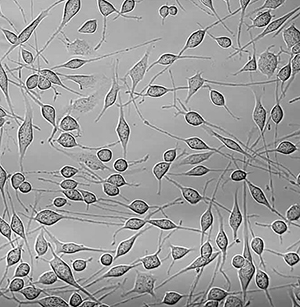 We study a whole category of genes that can transport minerals in the body and the
brain. Some examples of essential trace minerals are zinc, iron, manganese and copper.
Our studies have shown that differences in these genes are associated with altered
patterns in human brain imaging (MRI) that are common in neurodegenerative diseases
like Alzheimer's disease and Parkinson's disease or psychiatric disorders like schizophrenia.
When we disable these specific genes in cellular models in the lab, the result is
reduced neurite outgrowth, which is similar to shorter lengths in axons and dendrites
used by neurons to make connections in the brain. In animal models where we are targeting
and inactivating these genes, we have observed neural tube defects in frogs, and we
are studying whether similar impairments are present in mice.
We study a whole category of genes that can transport minerals in the body and the
brain. Some examples of essential trace minerals are zinc, iron, manganese and copper.
Our studies have shown that differences in these genes are associated with altered
patterns in human brain imaging (MRI) that are common in neurodegenerative diseases
like Alzheimer's disease and Parkinson's disease or psychiatric disorders like schizophrenia.
When we disable these specific genes in cellular models in the lab, the result is
reduced neurite outgrowth, which is similar to shorter lengths in axons and dendrites
used by neurons to make connections in the brain. In animal models where we are targeting
and inactivating these genes, we have observed neural tube defects in frogs, and we
are studying whether similar impairments are present in mice.
The end goal of our research is to ensure that if people have differences in the ways their genes are functioning due to genetics, we may be able to recommend the dietary consumption of these essential nutrients in order to promote brain health and overcome genetic vulnerabilities.
Faculty Contact: Dr. Winyoo Chowanadisai
The Impact of Nutrition on Aging and Risk of Obesity and Diabetes
Aging is a natural process through which we gradually lose the ability to maintain
homeostasis due to dysfunction. Fortunately, both increased physical activity and
dietary restriction have been shown to delay aging and other age-associa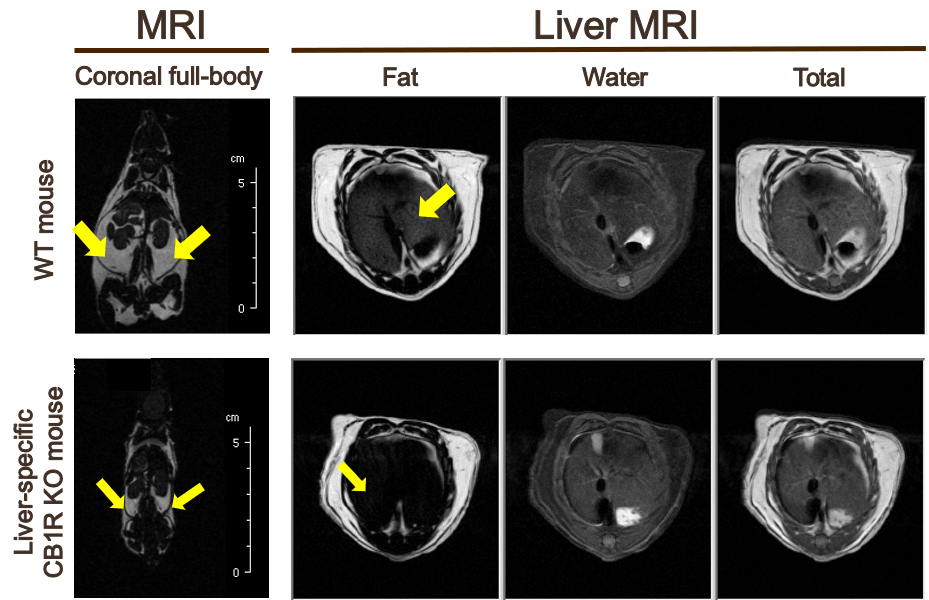 ted diseases. Aside from restricting total energy intake, little is known about additional
dietary interventions may delay aging. We employ a multi-disciplinary approach to
examine potential molecular targets of aging and introduce the notion of ‘senolytic’
effects, drugs, nutrients or small molecules that prevent, delay or even reverse aging-related
diseases.
ted diseases. Aside from restricting total energy intake, little is known about additional
dietary interventions may delay aging. We employ a multi-disciplinary approach to
examine potential molecular targets of aging and introduce the notion of ‘senolytic’
effects, drugs, nutrients or small molecules that prevent, delay or even reverse aging-related
diseases.
In addition to aging, we study interactions among nutrients, metabolism and genes that impact maintenance of glucose homeostasis to reduce the risk of obesity, diabetes and other age-related diseases. We continue to identify food bioactive compounds that regulate the insulin signaling pathway and enhance insulin clearance in an animal model of diet-induced obesity. We also continue to examine other candidate molecules from food bioactives that regulate the cannabinoid 1 receptor – a receptor involved in obesity and other age-related diseases.
Faculty Contact: Dr. Yoo Kim
Micronutrients and Cancer
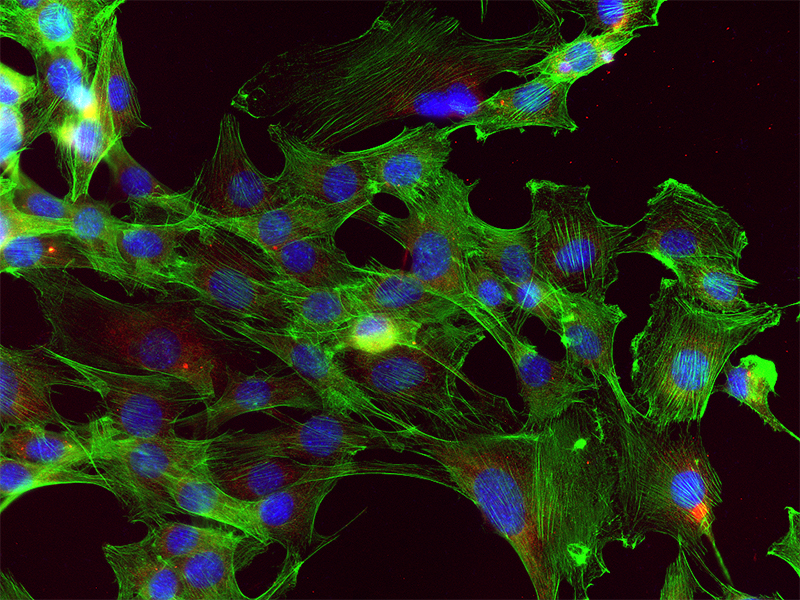 The long-term goal of this research is to understand how tumor cells compete for and
acquire the exaggerated amounts of iron needed to support neoplastic growth and tumor
expansion. Ongoing projects are examining how genetic mutations in cancer influence
tumor cell metabolism and efficacy of iron-targeted chemotherapies. Ultimately, we
believe this will allow us to identify and develop metabolic intervention strategies
for more effective precision cancer treatment approaches.
The long-term goal of this research is to understand how tumor cells compete for and
acquire the exaggerated amounts of iron needed to support neoplastic growth and tumor
expansion. Ongoing projects are examining how genetic mutations in cancer influence
tumor cell metabolism and efficacy of iron-targeted chemotherapies. Ultimately, we
believe this will allow us to identify and develop metabolic intervention strategies
for more effective precision cancer treatment approaches.
Faculty Contact: Dr. McKale Montgomery
Carotenoids and Immune System Function
Carotenoids are fat-soluble pigments that often found in a wide variety of fruits, vegetables and marine products. The two major groups of dietary carotenoids are carotenes and xanthophylls. Carotenes (e.g., b-carotene) are major dietary sources of vitamin A. Xanthophylls, such as zeaxanthin, lutein and astaxanthin are not capable of being converted to vitamin A. Because humans cannot synthesize carotenoids, the diet is the only source for these essential nutrients. With regular meals, only 10–20 percent of dietary carotenoids are absorbed in the small intestine. As a result, the large majority of dietary carotenoids reach the large intestine.
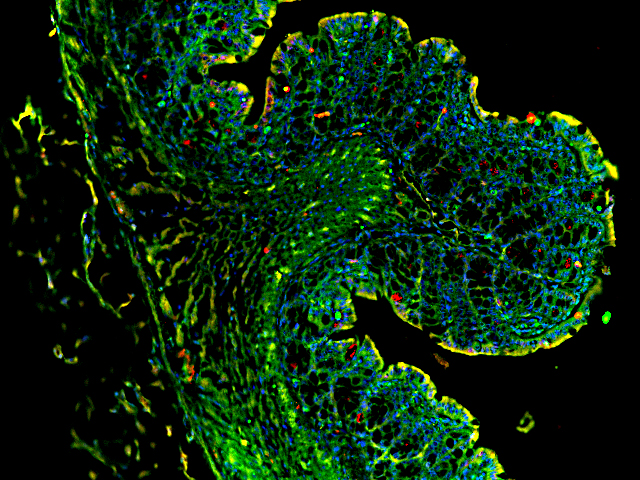 Carotenoids also exhibit antioxidant properties. We are currently exploring how carotenoids exert protective roles in human health by targeting the immune system
function and interaction with the intestinal microbiome. We are also interested in studying how carotenoids regulate of mitochondrial function in the immune cell response and the consequence of the
carotenoid-microbiome interaction in the host immune system function. Disease models utilized in our laboratory include obesity/lipid metabolism, diabetes/chronic inflammation and influenza virus infection/acute
inflammation.
Carotenoids also exhibit antioxidant properties. We are currently exploring how carotenoids exert protective roles in human health by targeting the immune system
function and interaction with the intestinal microbiome. We are also interested in studying how carotenoids regulate of mitochondrial function in the immune cell response and the consequence of the
carotenoid-microbiome interaction in the host immune system function. Disease models utilized in our laboratory include obesity/lipid metabolism, diabetes/chronic inflammation and influenza virus infection/acute
inflammation.
Faculty Contact: Dr. Dingbo Lin
Bioactive Foods, Gut Health and Metabolic Outcome
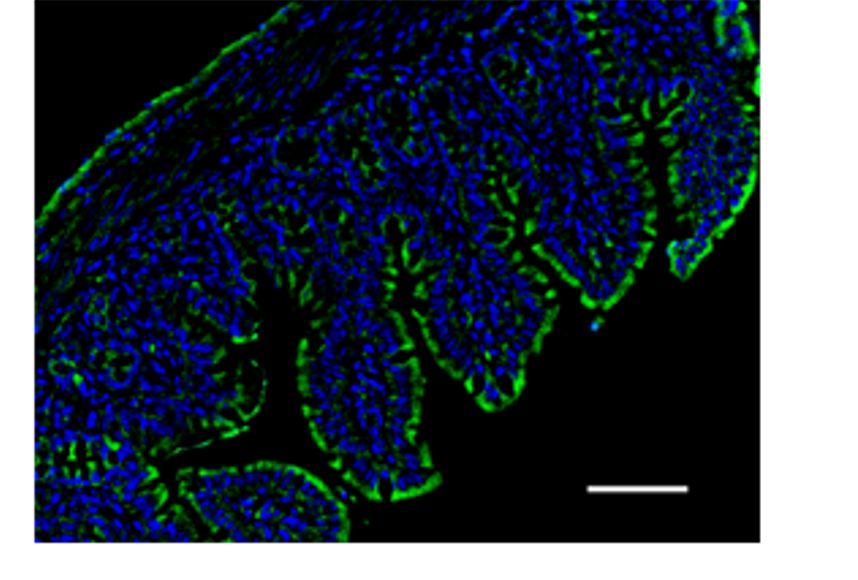 We are interested in how bioactive components in whole foods modulate gut health and
the impact on chronic disease prevention particularly obesity, type 2 diabetes and
heart disease. We use cell culture, animal models and human studies to identify and
understand how these bioactive food compounds affect the gut, improve metabolic outcomes
and subsequently effect distant tissues. Current human studies include investigating
the effects of wheat germ and pulses on gut bacterial population and markers of gut
integrity, body composition and metabolic outcomes.
We are interested in how bioactive components in whole foods modulate gut health and
the impact on chronic disease prevention particularly obesity, type 2 diabetes and
heart disease. We use cell culture, animal models and human studies to identify and
understand how these bioactive food compounds affect the gut, improve metabolic outcomes
and subsequently effect distant tissues. Current human studies include investigating
the effects of wheat germ and pulses on gut bacterial population and markers of gut
integrity, body composition and metabolic outcomes.
Faculty Contact: Dr. Edralin Lucas
Prebiotics, Immune Function and Age-related Disease
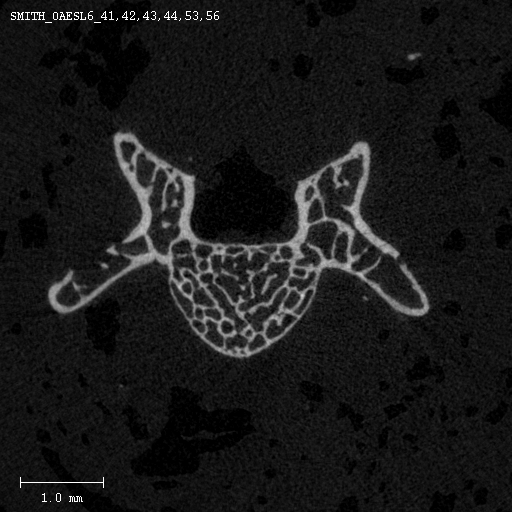 We study how bioactive components in foods can be used to improve immune function
and ultimately reduce the risk of diseases associated with aging. This work is primarily
focused on the intersection of prebiotics, gut immunity and osteoporosis, which afflicts
1 in 2 women and 1 in 4 men over the age of 50. Ongoing projects are investigating
how dietary sources of polyphenols and fructans affect the gut-bone axis through their
regulation of T cell biology. We also seek to understand how other conditions (e.g.,
type 2 diabetes and chronic inflammatory diseases) affect bone health, and whether
the combination of diet and exercise interventions can further reduce fracture risk.
We utilize cell culture systems, animal models and human studies to achieve our long-term
goal of developing better strategies to prevent and treat age-related diseases by
optimizing immune health.
We study how bioactive components in foods can be used to improve immune function
and ultimately reduce the risk of diseases associated with aging. This work is primarily
focused on the intersection of prebiotics, gut immunity and osteoporosis, which afflicts
1 in 2 women and 1 in 4 men over the age of 50. Ongoing projects are investigating
how dietary sources of polyphenols and fructans affect the gut-bone axis through their
regulation of T cell biology. We also seek to understand how other conditions (e.g.,
type 2 diabetes and chronic inflammatory diseases) affect bone health, and whether
the combination of diet and exercise interventions can further reduce fracture risk.
We utilize cell culture systems, animal models and human studies to achieve our long-term
goal of developing better strategies to prevent and treat age-related diseases by
optimizing immune health.
Faculty Contact: Dr. Brenda Smith
International Nutrition and Ensuring Sustainable and Safe Food Supplies
